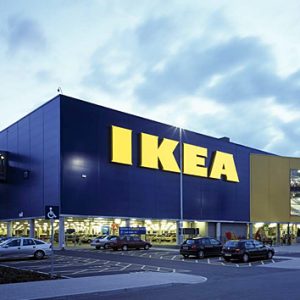Carel Maasland, former HR Manager at IKEA, and his team have shaped the global HR strategy for the furniture retail giant. IKEA is part of an exclusive group of high performance organizations (HPOs). But how do you become an HPO, and more importantly, how do you remain one?
The numbers are impressive: 500 million customers shop at IKEA each year, generating nearly 20 billion euros in revenue across 24 countries. This success is made possible by 120,000 employees. Maasland played a key role in developing an ambitious HR plan to further expand this success. What is the secret behind IKEA’s achievement as an HPO?
The foundations of an HPO
A high performance organization outperforms its competitors significantly over many years. Maasland explains that IKEA never explicitly aimed to become an HPO, but their way of working naturally aligns with other HPOs. The key lies in an open and transparent corporate culture, high-quality leadership, and investing in people, especially during economic downturns.
Maasland emphasizes the importance of a culture where everyone gives a little more than what is described in their job descriptions. This requires strong leadership and the ability to adapt quickly to changing economic conditions. Good relationships with the works council and unions also play a crucial role in IKEA’s success.
The value of shared values
According to Maasland, being an HPO is about shared values. At IKEA, these values are the heart of the company. The stronger the shared values, the more employees feel at home and understand how they contribute to the whole. This ensures that employees feel valued and know what their contribution is to the company’s success.
A people-centered approach
At IKEA, it’s not just about billions in revenue, but also about individual employees. Maasland believes that every employee, from the cashier to the warehouse worker, can make a difference for customers. Hard work is rewarded with a work environment where prima donna behavior is not tolerated, but employees receive a lot in return.
Innovative HR approaches
To remain relevant to the customer, IKEA focuses on providing good information and developing competencies. This means that employees grow in areas important to their specific store. Learning from and with each other in everyday practice is essential, and cross-pollination between departments benefits the entire company. Maasland aims to maintain the idea of a simple organization with minimal management layers and bureaucracy.
Future-oriented thinking
Maasland is working on a competence strategy to ensure that IKEA remains an HPO in the future. This requires reflection and adaptation to changing circumstances. Lifetime employment remains a goal, and by thinking counter-cyclically, IKEA can respond quickly when the economy picks up again.
A social and sustainable company
IKEA strives to be a good employer. This is evident in initiatives such as larger contracts and market-competitive wages in countries like Spain. Despite challenges, the company remains committed to providing a decent work environment and employee growth. Idealistic values are embedded in IKEA’s core, and this loyalty to employees is rewarded with loyalty and dedication in return.
Carel Maasland demonstrates that IKEA’s success as an HPO stems from a strong corporate culture, shared values, and a people-centered approach. By continuing to invest in people and innovation, IKEA remains relevant and successful in an ever-changing world.
For more information about the HPO Framework, HPO Diagnosis, our lecturers, HPO Experts, workshops and Master Classes, please contact us (schreurs@hpocenter.com).


